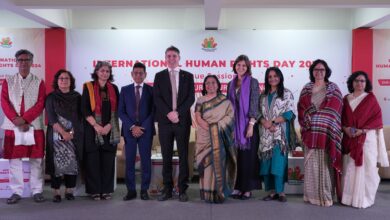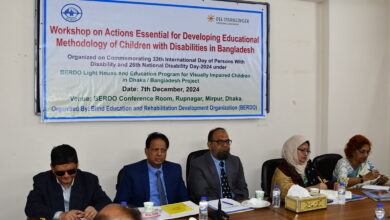Bangladesh summons US envoy over sanctions against law enforcement officials

Bangladesh Foreign Secretary on Saturday summoned the US Ambassador to express Dhakas disappointment over the sanctions imposed by Washington on seven present and former officials of the elite anti-crime unit Rapid Action Battalion RAB, allegedly over human rights abuses and extra-judicial killings.
On Friday, Benazir Ahmed, now a General Inspector of Police and a former Director General of RAB, and six other officials were designated by the US Department of Treasury under the Global Magnitsky sanctions programme in connection with human rights abuse. ”Today, on International Human Rights Day, the US Department of the Treasury’s Office of Foreign Assets Control (OFAC) is designating 15 individuals and 10 entities for their connection to human rights abuse and repression in several countries around the globe, pursuant to multiple sanctions authorities,” a US Treasury press release said on Friday.
In a simultaneous announcement, the US State Department barred Ahmed, and another former RAB official Lieutenant Colonel Miftah Uddin Ahmed, from travelling to the United States. “The Foreign Secretary (Masud Bin Momen) met US Ambassador Earl Miller and expressed the Bangladesh government’s disappointment over the decision taken unilaterally by the US administration without any prior consultation,” a foreign ministry statement said. “Human rights violations and abuses were reported to be committed by “wayward elements within law enforcement agencies in many countries, including in the US. But that would not justify singling out the high officials of any law enforcement agency for targeted sanctions,” the statement said. Momen lamented that the issues cited for imposing the designated sanctions remain under active discussions, including under the framework of the regular institutional dialogues between the two countries, and the US decision came without prior intimation.
Sources said that the sanction meant that the seven law enforcement officials could get their property in the United States, if any, confiscated.





